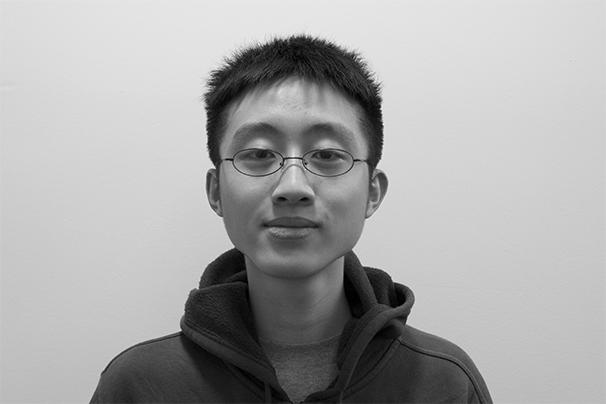When protesters occupied Independence Square in response to Viktor Yanukovych’s initial victory in the 2004 presidential election, Moscow had connections. During the protests of the Orange Revolution that followed the 2004 Ukrainian presidential election, Russian-leaning President Leonid Kuchma met with Russian President Vladimir Putin at an airport outside of Moscow to seek Putin’s support for Yanukovych, his chosen successor. Putin obliged by inserting himself into Ukrainian domestic politics. He dismissed the opposition’s demand for a new runoff election on Russian state media, which was also televised in Ukraine, and endorsed Yanukovych. The Russian endorsement failed. The Ukrainian Supreme Court nullified the election, ordering a new presidential runoff election that the opposition’s Viktor Yushchenko won.
Though losing its privileged access to the presidency, Russia believed that it could still manage Ukrainian politics from above, but this time leveraging its economic connections. Already facing the challenge of uniting a country whose eastern and southern regions overwhelmingly voted against him, Yushchenko also had to face the Russian energy monopoly, Gazprom, in multiple gas disputes. An especially rancorous gas pricing dispute in 2009, during which Gazprom shut off the flow of gas for a full 13 days, forced the prime minister, Yulia Tymoshenko, to visit Moscow to sign a deal that imposed devastating terms on the already ailing Ukrainian economy. The price of gas was set to rise from the discounted $179.50 per 1,000 cubic meters to $450.
The Orange Revolution was losing its momentum and Moscow’s strategy of heavy-handed economic diplomacy was helped along by Yanukovych’s timely ascent to the presidency, with a legitimate popular vote in 2010. His rise marked the decline of the Orange Revolution. In October 2011, a Ukrainian court convicted Tymoshenko on charges of corruption and abuse of office for negotiating the 2009 gas deal with his Moscow patron. Yushchenko had vowed not to extend Moscow’s lease on its naval base in Sevastopol, Crimea, which was set to expire in 2017. Yanukovych extended the lease to 2042, nudged by a cut in gas prices. Most importantly, Russia wanted to table the emerging association agreement between Ukraine and the European Union. To this end, Russia made a counter-offer: further cuts in gas prices and a much needed $15 billion bailout of Ukraine, which was heading toward default, with both offers not contingent on joining Russia’s Eurasian Customs Union.
Putin thought, not unreasonably, that nations will always respond to economic incentives. What Putin did not expect was that he would be outmaneuvered by the Ukrainian people, who, coming full circle, again massed along the same frontlines in Kiev to oppose him in a bloodier repeat of 2004’s events. Putin’s authority, bolstered by connections to Ukraine’s political elite and economic might, was thwarted by power from below. A new force had emerged in Kiev, and what happened in the square, not Moscow, dictated the future of Ukraine.
Putin’s money and gas diplomacy ultimately only proved to delay rather than stop Ukraine’s inevitable association agreement with the European Union. Caught off guard by the reversal of power, Russia quickly accepted reality. Rather than trying to pull Ukraine into Moscow’s orbit again, it would contain its losses. Russia took advantage of the chaos to annex Crimea, guaranteeing that Sevastopol would forever be in Russian hands, no matter what happened in Kiev. Russia knew that annexation with the rest of Ukraine would irreparably rupture relations with Russia, but there was no longer any benefit in delaying the inevitable. Learning from Maidan, Putin saw how local concentrations of power could trump the wealth and diplomacy of nations and applied that to Crimea.
Putin used the military to project Russian power at the local level to shape Crimea’s unstable political environment. Putin’s swift and precise deployment of forces quickly expunged Crimea of Ukrainian influence without actual combat, providing the cover and stability for Crimean separatists to hold a smooth referendum and annexation rollout. Russia also fought a media war in Crimea, monopolizing Crimean media to paint Maidan as a “fascist” takeover of Kiev. Black Sea TV, owned by opposition figures loyal to Kiev, saw its television transmissions shut down by armed men and its website pulled in a major denial of service attack. On Russian state media, Putin appealed to the feelings of Russians and Crimeans in an impassioned speech: “In people’s hearts and minds, Crimea has always been an inseparable part of Russia.” By the time the Obama administration imposed sanctions, Crimea was already irreversibly united with Russia.
In its handling of Crimean annexation, Russian foreign policy had changed from its previous top-down model of management into the more involved micromanaging of regional politics. As Russia no longer trusts its traditional tools of foreign policy to keep its neighbors in line, it will risk experimenting with new methods of intervention and violation of international laws. Moscow’s desperation breeds innovation — while the world was occupied with news regarding Crimea, busloads of Russian activists, or “protest tourists,” became experimental soldiers in Russia’s new foreign policy.
William Peng is a contributing columnist. Email him at [email protected].















































































































































